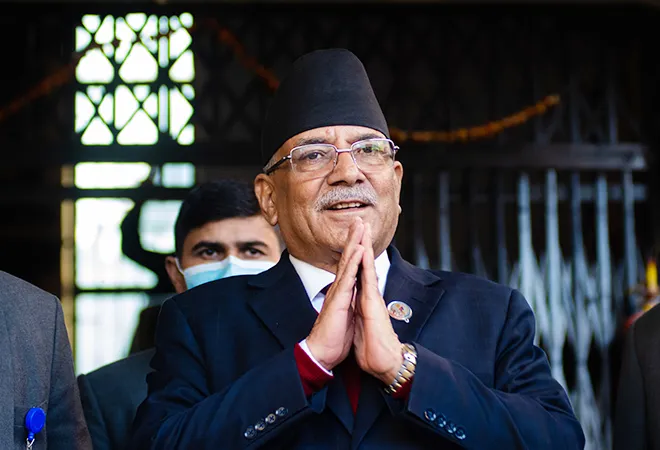In Nepal, K P Sharma Oli on Monday was sworn in as Nepal’s Prime Minister for the fourth time to lead a new coalition government. On Sunday, President Ram Chandra Paudel appointed the leader of Nepal’s largest communist party as prime minister to lead a coalition government with the Nepali Congress (NC), the largest party in Parliament, alongside other smaller parties.
Prime Minister Pushpa Kamal Dahal, also known as Prachanda, resigned from his position on Friday. He failed to secure a vote of confidence in Parliament. He could only remain Prime Minister for 1 year and 6 months.
In the floor test, he received the support of only 63 out of 275 members of Parliament. 194 members of Nepal’s National Assembly voted against him. He needed the support of 138 members to save his government.
Actually, earlier this month, the China-backed KP Sharma Oli’s party, CPN-UML, broke its alliance with Prime Minister Prachanda’s Communist Party of Nepal. After that, his government fell into a minority. According to Article 100(2) of Nepal’s constitution, he had to prove his majority within a month, which he failed to do.
Oli’s party, CPN-UML, has decided to form an alliance with Sher Bahadur Deuba’s Nepali Congress, the largest party in the country. It is worth noting that Sher Bahadur Deuba is considered pro-India, while Oli is regarded as close to China.
It is estimated that KP Sharma Oli will become the Prime Minister in the new government for one and a half years. After that, Deuba will take over as Prime Minister for the remaining term. KP Oli will return to the PM position after four years. He previously served as Prime Minister from 2018 to 2021.
Oli’s tense relationship with India
Former Prime Minister KP Sharma Oli is considered a supporter of China. During Oli’s tenure as Prime Minister, the disputes over Kalapani, Limpiyadhura, and Lipulekh became quite serious. Oli claimed these areas, which are part of India, as Nepal’s territory. Hence, it is believed that Oli’s return to power could again cause tension between the two countries over this issue.

